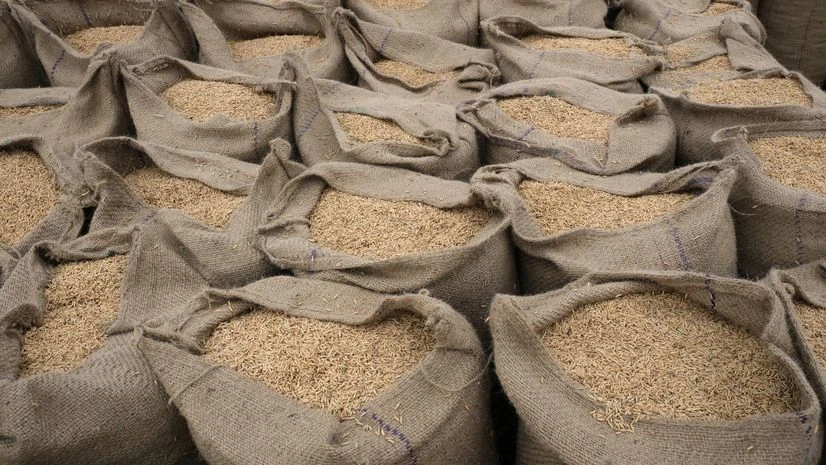Global rice prices are not expected to cool down significantly before 2025 due to export curbs from major producing nations and a continuing threat of El Niño, the latest World Bank Global Commodity Outlook said.
The report, which was released recently, also said that global rice prices that averaged 28 per cent higher in 2023 than in 2022 are expected to increase by another 6 per cent in 2024. This is partly due to the threat of El Niño, policy response from significant exporters and importers, and the geographical and market concentration of rice production and exports.
This should ring some alarm bells in India, which is staring at a drop in domestic kharif rice production in 2023, due to low monsoon in August.
The Centre has already clamped down on export of rice from India thus wiping off almost 40 per cent supplies from the world markets.
Overall, the report said, agricultural prices are forecast to fall by 7 per cent in 2023 and a further 2 per cent in 2024 and 2025 owing to ample supplies.
The report also mentioned that maize prices are expected to end the current year at 22 per cent below their levels in 2022, and decline further by 8 and 4 per cent in 2024 and 2025.
More From This Section
On wheat, the World Bank said that global wheat prices are trending on an average 20 per cent lower in 2023 than the 2022 levels, and should decrease further by about 3 and 5 per cent in 2024 and 2025 respectively.
The World Bank said sugar and cocoa prices are expected to decline from their 2023-highs, though fruit prices should remain high in 2024 on weather-affected supply shortfalls.
On fertilisers, the outlook said prices are expected to decrease as more supplies become available online, but they are likely to stay above historical averages due to some supply constraints and China’s ongoing export restrictions.
Cotton: Domestic cotton production in 2023-24 season, that started in October, is expected to drop to around 29.51 million bales (1 bale=170 kilograms) from 31.8 million bales in the 2022-23 season (a fall of 7.23 per cent), due to low yield because of drought in some major growing states and impact of pest attack, the Cotton Association of India (CAI) said in its first official estimate released today.
However, trade sources said if domestic demand remains at around 31.1 million bales, then India might be able to export around 1.4 million bales as opening stocks are at around 2.9 million bales. But if textile mills operate to their full capacity, domestic cotton production might fall short of demand.
Sugar: The Indian Sugar Mills Association (ISMA), in its first estimate for the 2023-24 sugar season that started from October today, said gross production without accounting for diversion of ethanol is expected to be around 33.7 million tonnes, which is less than 36.6 million tonnes last year.
Consumption this year is expected to be around 27.8 million tonnes. On the diversion towards ethanol, ISMA said that it will declare only after feedstock-wise ethanol procurement price for ethanol supply year 2023-24.

)
